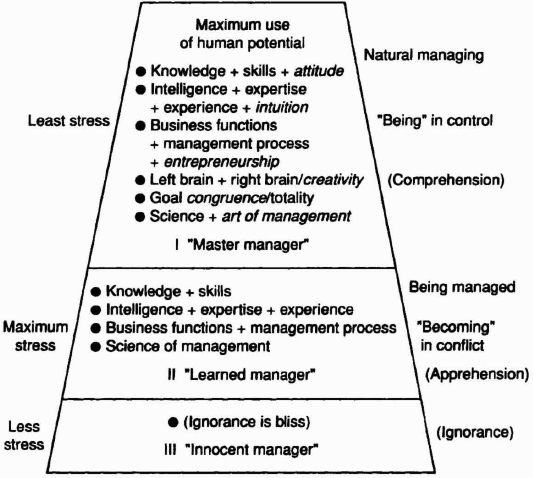The Master Manager: “Re-visioning”
Broadly speaking, managers can be classified into three categories: (a) the innocent manager, (b) the learned manager, and (c) the master manager (see figure 3.6).
1 Prior to the development of management as a profession and as a distinct educational discipline, most executives managed their business organizations through their common-sense and personal insights. If you operate at this level, you are an “innocent manager.”
2 However, as the functions of business and the processes of management became more complex, it was found that intelligence alone was not enough: specialized expertise was now considered essential for effective management. With professional management training, in acquiring further knowledge and skills of business functions as well as management processes, you become a “learned” manager. However, as management becomes even more complex, and you become involved in multiple roles and responsibilities, there are concomitant conflicts. As you face up to these, a growing feeling of apprehension and stress often occurs. At this point the learned manager experiences, on the one hand, an escalating achievement orientation and, on the other, a growing dependence on external factors. At this stage, you experience maximum stress, in that while you are managing your organization you are also in a sense being “managed” by it.

Figure 3.6 ...
Get Beyond Leadership: Balancing Economics, Ethics and Ecology, Revised Edition now with the O’Reilly learning platform.
O’Reilly members experience books, live events, courses curated by job role, and more from O’Reilly and nearly 200 top publishers.

